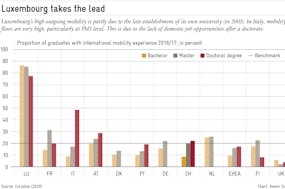One and a half years after the outbreak of the Corona pandemic, the state’s footprint has reached a size no shoe store can match. After spending 15 billion Swiss francs in the crisis year of 2020, the federal government’s Corona budget for 2021 has hit almost 25 billion Swiss francs.
The state’s manna also falls ceaselessly at subordinate levels. The canton of Zurich has surpassed the 1 billion mark for hardship aid. Such fiscal decadence is particularly evident in the big Swiss cities run by left wing alliances of Socialists and Greens. Despite higher tax revenues, Zurich’s budget foresees profound deficits for the next four years. The city’s base is melting away by more than half, and debt capitalization is rising sharply. But instead of saving money, thousands of new public sector jobs are being created. Soon there will be around 24,500.
There is something seriously wrong in a world where the administration becomes the largest single employer. But there has been no popular outcry – what’s the point? The urban population is increasingly dependent on the public sector, whether in terms of administration, municipal businesses, or schools. Meanwhile, people live comfortably in subsidized housing cooperatives built to high standards and with plentiful bicycle parking spaces – of course at rents far below the market price.
The paradigm shift toward increased government activity does not stop at urban city borders. Swiss culture, once ahead of the curve in its critical view of public sector bureaucracy, is becoming increasingly governmental itself. Even big media groups are seeking financial aid. To what extent will media professionals be able to fulfill their important democratic and critical roles if their jobs increasingly depend on state largesse?

Spending discipline is declining both in cities such as Zurich and at cantonal and federal level. (Thimo Pedersen, Unsplash)
Now, the trade lobby has capped it all: it wants to forget about repaying Covid-19 loans. Any undergraduate economics textbook explains the difference between loans and outright gifts.
A liberal reaction is needed to the spread of big government. The pandemic has taught us: it is not the quantity, but the quality, of government services that matters. That’s arguably more difficult than simply spending other people’s money. The easiest way – as the saying goes – is always downhill.





